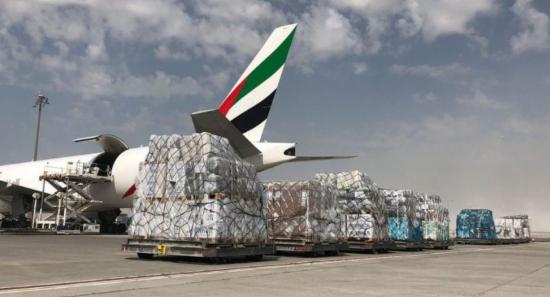.webp)
-752199.jpg)
IMF Warns of Global Risks: Inflation, Debt, and Reforms Must Be Prioritized
COLOMBO (News 1st); Kristalina Georgieva, Managing Director of the International Monetary Fund (IMF), has emphasized the need for decisive action on inflation, debt, and pro-growth reforms to steer the global economy through current challenges.
Georgieva speaking to reporters in Washington underscored the importance of bringing inflation under control across major economies.
She acknowledged that central banks, particularly in the United States, have adopted more lenient monetary policies, a necessary step in preventing long-term economic damage. However, she cautioned that the challenge now lies in completing the fight against inflation without significantly harming labor markets.
"Major central banks, including in the US, have rightly embarked on an easing path," Georgieva said. "The trick now is to finish the job on inflation without unnecessarily damaging the job market."
Shifting focus to global fiscal policy, Georgieva stressed that countries must act now to address debt and deficits, following years of fiscal stimulus in response to economic shocks. While rebuilding fiscal buffers can be done gradually, she noted that immediate action is essential.
"After years of much-needed fiscal support in response to shocks, now is the time to rebuild fiscal buffers," she stated. "In most countries, that can be done gradually, but it needs to start now."
Georgieva highlighted progress under the G20 Common Framework, which aims to expedite debt restructurings for countries in distress.
She acknowledged that while many countries face significant liquidity challenges due to high interest rates and debt servicing costs, their debt levels are not yet unsustainable.
To address these concerns, the IMF, in partnership with the World Bank, has developed a three-pillar response that includes growth-boosting reforms, increased financing from international institutions, and mobilizing private finance.
According to Georgieva, pro-growth reforms, such as reducing bureaucratic hurdles and improving governance, are essential for fostering economic recovery. These reforms, she explained, have proven to yield substantial benefits for countries, especially in the developing world.
"Our analysis shows that these reforms can boost output by up to 8% over four years in developing countries," she said, encouraging nations to pursue these policies to unlock long-term growth potential.
In addressing global trade, Georgieva emphasized the need to protect the gains of economic integration while ensuring that the benefits are more equitably distributed. Acknowledging the shortcomings of globalization, she urged policymakers to assist those who have been left behind by global economic trends.
"We know that globalization has not delivered for everyone, and we must attend to the needs of those who have lost out," Georgieva noted. "At the same time, we must ensure that trade remains an engine of global growth, especially for developing countries."
She warned that a fragmented global economy would disproportionately harm developing nations, which stand to lose the most from a breakdown in global cooperation.
Georgieva reaffirmed the IMF's commitment to helping its member countries navigate these turbulent times.
She highlighted the IMF's role in providing financial support, with a record 97 countries receiving assistance since the pandemic, the majority through multi-year programs.
The Fund’s concessional lending has tripled in the same period, and the Resilience and Sustainability Facility, designed to help countries strengthen climate resilience, continues to grow in popularity.
"Interest in the Resilience and Sustainability Facility continues to grow. We have 20 countries now using the facility to enhance their climate resilience, almost double the number when we met a year ago," Georgieva stated.
With global challenges mounting, the IMF stands ready to offer its financial resources, policy advice, and analytical expertise to ensure countries can make informed decisions and stabilize their economies.
"Our analysis helps policymakers understand the costs and benefits of policy choices," Georgieva noted reaffirming the IMF’s resolve to assist nations during these uncertain times.
Other Articles
Featured News





.png )
-819692_550x300.jpg)

-819672_550x300.jpg)

-819660_550x300.jpg)
-819654_550x300.jpg)




-819380_550x300.jpg)


-812087_550x300.jpg)
-810262_550x300.jpg)
















.gif)